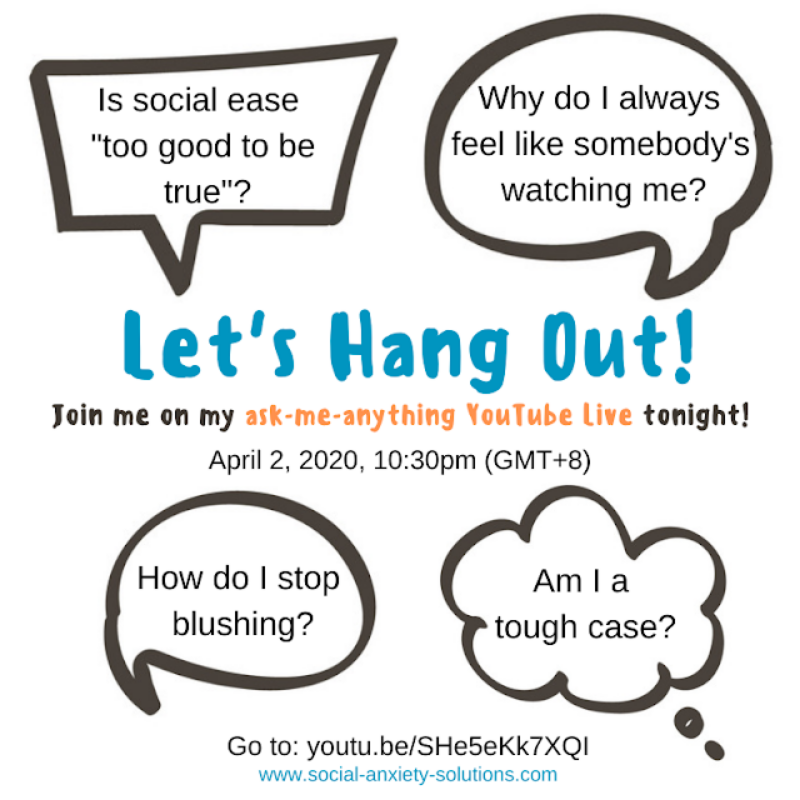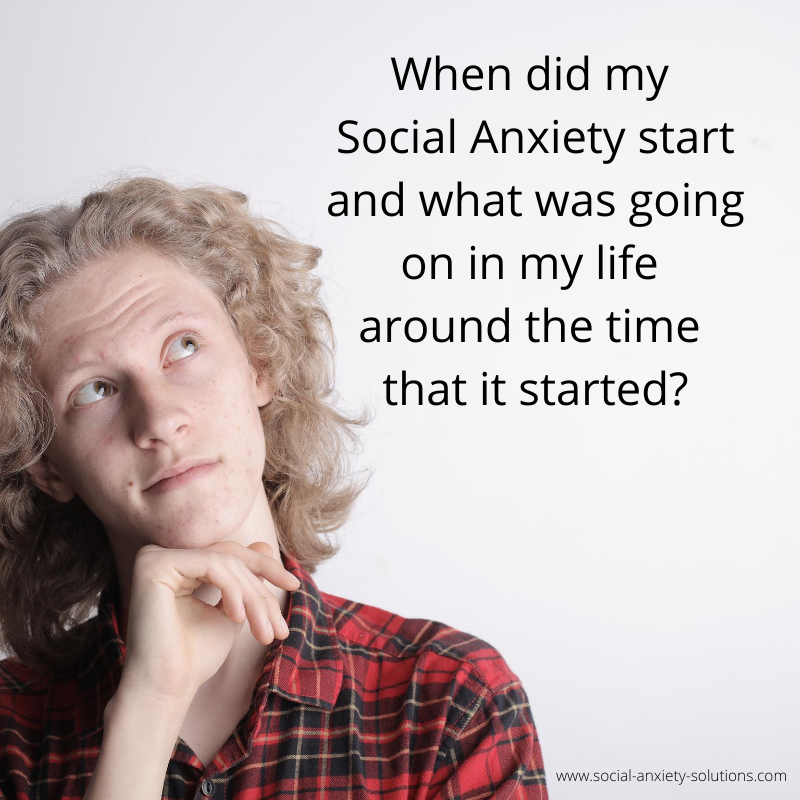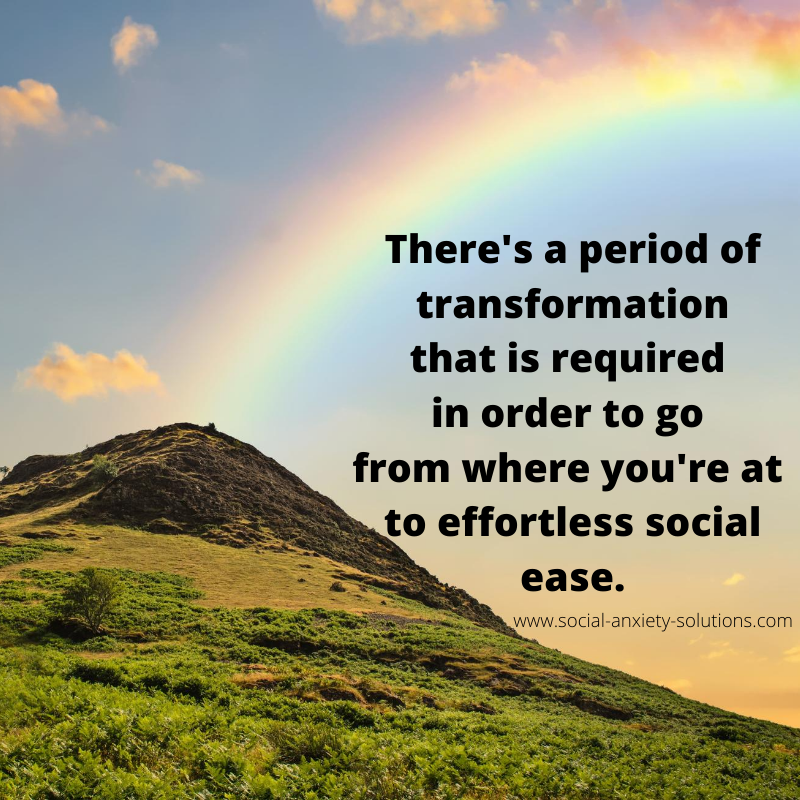SUMMARY
Today marks Day 7 of the 30-Day Social Confidence Challenge.
Hundreds of people who joined the challenge have now started #TheSocialConfidenceJourney.
By now, they have a foundational understanding of what it takes to overcome their social anxiety.
As we celebrate its first week (hey, it might not be a big leap yet, but every small step counts!), I am doing a live session so you can ask-me-anything that I can help you in terms of your journey to social confidence.
This is open for everybody – whether you are inside or outside the challenge – you are very much welcome.
See you there!
FULL TRANSCRIPTION
Hello everyone! This is my first time doing this.
Hi Arjun! How’s it going?
Here I am, I’m Live. I’m trying to figure this out. I’m looking at my phone where I can see comments. I’m talking here to the camera. Here we go. This is good. All right, we’re working. Oh my god. All right.
I’m a little bit tired. I’ve been working out with my friend. But here we are. Yeah, this is good.
Welcome for being here. I think most people that that are watching this, they are in the beginning of a 30-day challenge. It is going spectacular. It’s really, really cool. We’ve got 20 comments short of a thousand comments in just a week. Many of those are mine. While not many, well almost half of those are mine because I’m replying to everyone. It’s just really cool. We’ve got people from all over the world from India, to New Zealand, to Germany, to the Netherlands, to Canada, to the US, to Denmark, to Ireland. I could go on. It’s fairly awesome. We have from all over the world. So that’s really nice.
Hi, George Michael. Very good name. Thanks for being here.
I just wanted to briefly go over some of the comments that were made under these videos (inside the challenge).
Each day, I send out an email with some information, or a lesson, or some insight, or some mindset. At the end of that email, there’s a link to a video. That video has a particular exercise in it. Often that exercise is related to tapping.
At the end of that tapping exercise, I asked everyone to share their comment underneath that video (there’s a comment section). Within the challenge, I’m progressively taking people from the beginning – suffering from social anxiety to the next step. So that, by the end of the 30 days, people have made a significant improvement in their social anxiety.
I just want to go briefly into a comment from each day. If someone has any questions, by all means, let me know and I’ll answer them. If not, it can be pretty short, nice and sweet. And I’ll go watch a movie and that will be the end of it. But if you have a question then after this, you know, I’m all yours.
Alright, so here we go.
By the way, you can already type that question here because I’m following this on my phone. Great.
So, this is on day one. It’s a comment by Leroy from Washington, US. He says, “I’m feeling very calm and centered after the first video.”
Day two. Comment by Marina. She says, “I just finished day two. And I should say that tapping really works for me. But in a kind of strange way. I was doing exercise focusing on a tight feeling in my chest. And then I noticed that this feeling is irritation and a bit of jealousy for other people that are feeling free in their own body, and I’m stuck in my own armor. I continue tapping, and this feeling became less. I feel like I am still alive. And this feeling became less and less intense, really interesting experience. Maybe I’ve just unpacked some anger.”
Day three, from John. “My number one reason for overcoming my social anxiety is that I want to love and accept myself unconditionally. So, I can give myself permission to be the real me in any situation. I want to express myself authentically, feel confident, and self-assured. To live a life based on my values and desires, rather than a life full of fear and shame.”
Day four, from Austene. She says, “Before the tapping, I-can’t-change felt a nine out of 10. After, it felt like a three out of 10. My fear to change was a 10 out of 10. After the tapping, it was a five out of 10. Seb, I really felt this worked. I imagined whatever you said. I also imagined all the bad social experiences that I had, and I must say you’re nice. I wish to talk like you one day. I felt so at peace after this session.
Day six, from Justine. “I listened to video one. I didn’t really relate to the guy.”
By the way, I had them watch some video testimonials. Because in the beginning, I’m building up everyone’s belief that they can and will overcome their social anxiety by giving them both facts, by giving them experiences where they feel the emotions moving in their body as a result of the tapping, by moving them bit-by-bit from “I can’t change and I’m afraid to change” to “Well, I’m not afraid to change. I feel good about change. I feel that I can do it.” That’s what this whole week has been mostly focused on.
So, on day five, I had everyone watch a video testimonial. Actually, I had them pick from six different testimonials. So, Justine on day five was saying “I listened to video one. I didn’t really relate to the guy. Maybe because I didn’t know exactly what his issues were. But despite that, one thing that caught my attention throughout the interview was that when he mentioned something about the right questions being asked. It got me thinking – maybe there’s more to my social anxiety than what I see. Usually, when my social anxiety pops out, I always feel like a total loser. And then I got drawn to the negative negativity. It never really occurred to me that maybe there were situations before that made me feel this way. Wow. I think little by little I’m starting to get into this. My skepticism is starting to diminish because now it’s starting to make sense. Thanks.”
Day six, from Yesna. “Hello Sebastiaan. Yes, I have discovered that I don’t accept my social anxiety and feel ashamed about it. While tapping on the acceptance, I cried and I felt something like compassion for that part of me that wanted to help me. Thank you so much for this challenge.”
Day seven, from Tochi. So, if you’re listening, I don’t know where you’re from, but it sounds Japanese to me. Anyway (he says), “Why is it that I kind of “I will overcome my social anxiety”? Because I’m already seeing good progress for just a week. When writing my first comments during this challenge, I was scared that someone I know might somehow find out that I was dealing with this anxiety, kind of how you did with that question about your dating life. But now I feel a lot more confident and comfortable with opening up. I believe that it’ll only get better and better from here. I also know that I’ve got nothing to lose, so I’ll be able to commit fully to this journey.”
Alright.
I hope that gives you a bit of a feel of what’s going on here. People are moving. People are transforming. There’s a palpable sense of “Wow, I really can change.” That’s very exciting.
I pulled everyone’s emotion. I asked them how they felt after the first day of a simple tap along. I turned all the emotions that came up. It was about half-half. Half of me is a little bit more positive than negative.
On the negative side, people sometimes said anxious, or worried, or scared, or irritated, or frustrated, and so on. A whole bunch of negative emotions. Then, there are also a bunch of positive emotions like optimistic, hopeful, excited, grateful, positive. On the positive side, the one that was said the most were excited and hopeful. That’s really what I’ve been trying to build on in this first week – so that people feel hopeful and excited. But it’s not just based on “Hey, I’m listening to Sebastiaan and he’s motivating me.
I’m not motivating the people in this challenge. I’m not just motivating you. I’m giving you the actual facts of what’s going on with your psychology. Why is it that social anxiety is there? How this can actually change? And then, after I’ve given you the facts, and then giving you an experience of the tapping specifically about the facts that I’ve just given you so that what I’m being said, is backed up by your personal experience. And that’s starting to bridge that belief that “Hey, wow, I really can overcome this. This is amazing.” That starts to fuel that excitement. That excitement is necessary because this is a journey. You’re not going to overcome your social anxiety in a couple of weeks. There’s a period of transformation that is required in order to go from where you’re at, to effortless social ease, where you’re just at ease with yourself, or you’re okay with however you show up, or you’re fine looking like a dumb ass, or you’re just free and in the moment, where you are relaxed and can connect with people.
You’re being hyper, and when you’re hyper, you can be nested. Or you can just be calm and chill. You can have other people do the talking. There’s not a particular way that you have to show up. You show up how you feel because you feel safe being yourself. So that’s what the journey is all about. And it’s a progression.
I started the 30-day challenge on the 26th of March and I closed it there. With everyone who signed up prior to that date, we were going to do 30 days. Then I closed it and my friendly assistant (Lia) put up a sign that said, “Hey, we’re not sure if this is ever going to run again. Maybe it’s going to happen again. If so, sign up, and you’ll be on the early announcement list.”
We were doing this for the first time, and we made some technical error. We don’t exactly know what happened, but a couple of people kept signing up. So, there are some people that signed up later and they’re now a little bit behind. Now, if that’s you, if you’re just on day one or two, try to catch up. Okay, I’ll extend it to a little bit longer. We’ll keep going until the first of May. So, we’ll keep going a little bit longer, so you have time to catch up.
If you’re just behind because you haven’t been doing so much, just know that it’s going end at one point. This is not here forever. So, catch up. Get away from “I’ll do it next time, or I’ll do it one day.” As they say, that leads to a town called nowhere. This is free. This is amazing. This is some of the best of the best that I can give you within these 30 days. When you put in the effort and you start doing all those things that you’re being offered, you are going to make a profound transformation. I hope this inspires you to get your ass going.
Now, if you’re somewhere in the middle of day two, or day three, or day four, or day five – Great! You’re in the middle of it. As you can see in the comments section, the more you do it, the more you become committed to it because you’re starting to see more results. Seeing more results builds your belief that “Wow, this is happening, I’m doing it. I can really do this.” Now, you’re starting to take even more action and you become even more committed. So, keep going. Keep doing more. It’s just 20 minutes a day. What are we talking about?
If you’re on day six or day seven – Awesome! There you are, you’re right on target! You are fantastic. It takes effort, especially in the beginning to build up willpower. It is challenging. It is most challenging the first week. So, if you’re there, you’re all the way on day seven? Men, you’ve got most of the hardest stuff done. You’ve got a bunch of evidence already. You’ve made progress. You’ve pushed through those early challenges that require willpower to overcome. If you’re in the earlier stages, push yourself. Just like, I heard this metaphor, “A rocket that needs to go out of space expends the most amount of fuel when it lifts off. That uses so much of its fuel. But once it eventually hits a certain height (When you’re past the atmosphere or something. Clearly, I’m not an astronaut), then it almost goes by itself.
That’s what this as well. You want to push in. Get yourself to do those first days. That’s the most important. Push yourself. Do it. No excuses. Simply do this. Commit to it and know that you’re committed to it.
When your head hits the pillow at night and you haven’t done the daily exercise, you cannot go to sleep. You simply have to go up, go to your computer. If you’re in a house where he can do that. Take your phone, lock yourself into the toilet, where you have some privacy and do it. No excuses. That’s how you get things done.
I have a commitment with my coach. For example, at the moment I’m doing a particular diet. No gluten, no dairy, no eggs, no mustard seeds, no cauliflower. No life pretty much. It’s actually not that bad. So, I’m doing a challenge. Every day, I’m emailing her to let her know that I’ve committed myself to the challenge. So, I know that if my head hits the pillow, I know my mind will go over “Have I missed something? Oh, I haven’t emailed my coach yet.”
By the way, it’s also sitting for a little bit of meditation before I go to sleep. So, before I go to sleep, I’m like, “Oh, I still got to do that.” I can’t go to sleep because I have that commitment to myself. Honor those commitments.
Michelle wrote about it in the challenge as well. As he said, “Hey, yesterday, I actually didn’t feel like doing it, doing the exercise. I was tired and everything, but I decided to do it anyway. Even though I felt tired, I did it. As soon as I did it, I got my second wind. It was great. I felt good and I got relief. Today, I feel proud that I’ve done it. It built some esteem.”
That’s what you want to do. No excuses. Commit to it. Do it. Nothing is going to change if you don’t take any action. If you’re just listening to me all the time, and you’re just reading emails, but you don’t take any action? All you’re doing is you’re becoming smarter. That sounds great but it’s useless. Apply the knowledge. Applied information – that’s what gets you to knowledge. Information is just okay. You can be smart towards someone. Take action. All right. So that’s my long speech.
If anyone has any questions, then I’m going to read them now and I’m going to give them my answers. So here we go.
Hi Mou. Hi Jorrith. Hi George Michael. Hi Marta. Hi Jordan. Hi Cole. Hi Arjun. Hi Rochita. Hi Michelle. Hi Hello Arjun. Hello Amina. Hello, everyone.
So, questions. (From) Jorrith. “If a person is diagnosed with a mild form of autism which gives a feeling of social awkwardness as a default and experiences social anxiety on top of that because of negative experiences. How do you think this can relate to each other? Is it even possible to get anxiety-free in such a case? Do you have experiences with clients who dealt with such or general thoughts? Thanks.”
Well, thanks for your question. No, I do not have any experience with clients who also have autism because I don’t specialize in anything else but social anxiety. So, if someone reaches out and they say, “Well, I have autism, but I also have social anxiety.”, I will refer them to someone who specializes in autism. If I think I happen to have someone in my network.
That said, this is just my opinion and my thoughts. I’m not sure about the following, but I think that for someone with autism, you can be okay with awkwardness. Anxiety just shows up when your brain perceives that there’s a threat. If you’re okay with the fact that you’re different and you’re okay with the fact that you don’t really read other people’s expressions very well, or you come off weird sometimes (I mean, I come off weird many times), because there’s lots of freedom and being okay with that.
So, is it related? The answer is I don’t know. Do I think that someone with autism automatically needs to have anxiety? No, totally not. Do I expect that someone who has autism, but also has some anxiety that that person can become relaxed and at ease socially? Yes, most likely. That’s it. All right.
The next question is by Jordan, “Can I make a tapping session to reduce eye-contact fear or anxiety?”
Well, not really. Here’s the thing. When you have an eye contact problem, there’s a lot more to it than just that particular symptom. I had a huge eye contact problem for a long time. I often shared that even with my sunglasses on, I couldn’t even make eye contact with people. Even though I knew that they couldn’t see my eyes. Very strange. I knew that they couldn’t see my eyes and yet I couldn’t maintain eye contact. It’s just my brain was saying, “Yeah, maybe they could see your eyes.”
There’s a lot more underneath that. That most likely has to do with being ashamed of who it is that you are. Question for you would be, what are you so afraid of that people will see when you make eye contact with them? What are you trying to hide?
Those are questions to get the ball rolling. If you do a tap along on that, what you’re then doing is – you’re just tapping on the surface. You’re tapping on the symptoms of anxiety. That’s kind of like cutting weeds in your garden. You might get a little bit of relief, but it will most likely be temporary. Because you need to pull the weed’s root in all, otherwise they keep growing back up. That makes sense, right? Good question.
Next question is from Amina. “How fast can someone get rid of their sweating symptom?”
The answer is I don’t know. It depends. That might be a physical condition that someone has. I do not know, it could be. If it’s really a social anxiety symptom, which it often is, then the question is the same as “How long does it take for someone to overcome their social anxiety?” That’s a question that is impossible for me to answer because it’s different for different people. It depends on your background. It depends on how much anxiety there is. It depends on the support system that you have in your life. It depends on your upbringing, your current relationships, your belief system, your level of acceptance. There are so many different things that influence how long it will take that makes it impossible to say.
That’s why I can only give you averages, as what I have given you inside the challenge. I’m sorry, I cannot answer that. The real answer is – It takes as long as it takes. The sooner you become okay with the fact that you’re sweating, the sooner your suffering decreases, and the sooner your anxiety can go. Acceptance is a precondition of change. Good question.
So next, anyone else have questions? Now we’re on a roll. All right. Let’s see.
By DeluZe198, “Sebastiaan, I’m willing to take action for many weeks. But I’m very frustrated whether or not I’m actually tapping in the right way (also knowns as right route memories, acceptance).”
Well, please reply in the comment section DeluZe, if you are within the challenge or not. I’ll scroll back to you,
Next from Jack, “How did you learn how to talk to people on camera?”
Well, I looked in the camera and then I started and I noticed you know what, I learned it in the same way that I started podcasting. I learned it in the same way that I started salsa dancing. I learned it in the same way that I started becoming confident and at ease in co-working spaces. I faced my fear, but not in the typical forcefully awkwardly face your fears approach. No.
I first addressed my fears and my anxiety, my worries and my dread prior to going on camera, then I did. It was with a minimal amount of anxiety. If you watched my first video on YouTube in 2009, you can see that I’m far from as free-flowing. I even look stoned like I smoked some weed. I didn’t, trust me. I did smoke a lot of weed at a time. I don’t anymore now but I wasn’t stoned. I was a little bit anxious there, or at least definitely not comfortable completely. That was my first video. I reduced my anxiety to such a level that I was comfortable enough to move forward. Then, I moved forward and afterwards, I tapped on what came up for me. Like that.
Same thing I did with my salsa dancing. Although with my salsa dancing, I had been anxiety-free for a long time already. When I went to my first night of salsa dancing, by now I had maybe 10 lessons. Imagine this, when you’re salsa dancing, you’re not instantly good. You’re not instantly good after 10 lessons. In fact, even after a year, you’re not great. It takes a long time, surprisingly. But it’s amazing. If you ever thinking of going for something. It’s my absolute passion in life. Now it’s the thing that I miss the most in quarantine except for my daughter and family.
When I finally went out to go social dancing, I still suck. I still look like a dork. I got to ask a girl to dance while I can’t dance. So, you’re getting a pity dance. Everyone looks amazing and I don’t. Going into and the thought of that gave me some nervousness, some butterflies in my stomach and some anxiety. Maybe it was a five? What did I do? I tapped beforehand, and I got myself to almost no anxiety, maybe a one, maybe a two. Then I went. Now when I walked in my anxiety got up a bit. Maybe it’s three, maybe four. I’m allowing the anxiety to be there. It’s okay. It’s fine if I’m a bit nervous. That’s normal. I gave myself room to have uncomfortable emotions.
As it goes on with salsa nights, you usually have a host and then the host comes over to you when you’re totally new and they dance with you to give you an easy way in. So, I danced with her, with Dian and she’s been dancing for 10 years. She’s smiling and friendly. I’m stumbling on the floor and trying to give her a turn. I was missing the beat and looking like a dork. As everyone does when you just start out dancing. That was it. That was the end of my dance.
I stayed for a little bit longer and I’m like, “Alright enough”. I went home. I tapped to clear all the fears, worries, and things that came up for me. So, what came up for me was like, “I got to look good.” Well, what a stupid idea. I’ve been dancing for 10 hours and I’m surrounded by people who have been dancing for years. Some of them have 15 years. I can’t look good. It’s going to take a long time. So, I’m tapping on “I have to look good. I don’t want to look like a dumbass.” Well, you are going to look like a dumbass. So, deal with it.
With all my resistances, and my fears, and my worries, and my dreads, and my concerns, I all tapped that down. Then, a couple of days later I went to the next social dance. Beforehand, my anxiety was already a lot lower. So, the first time it was a five. Maybe the second time it was a three. I tapped that down. I had some of the same fears, worries, and concerns come up, but less strongly. I went through it. I allowed that experience to be. Afterwards, I tapped it down. The third time I went, there was almost no anxiety. The fourth time I went, it was no problem. Within two weeks, I was comfortable on the dance floor.
Whereas, I spoke to one of the girls (Eurika). She said that after 10 months, she still wasn’t comfortable on the dance floor. I’m like, “Wow, 10 months! You’ve pushed yourself through anxiety. That’s crazy to me.”
As a result, I feel that I’ve grown a lot faster. Don’t get me wrong. I don’t want to get a big head about how good of a salsa dancer I am. I’m not that great yet. Big goals. But I’ve been able to grow really fast, especially in the beginning because I didn’t have nervousness about going social dancing. I was looking forward to it. I’m like, “Wow, I can grow.” The more I do it, the faster I grow. I don’t mind looking like a dork. I was okay with whatever. That’s what you want to get to. That’s social ease. It’s not confidence, it’s social ease. Right, great question.
From Sanjay, “Should I regularly just sit and think back into my childhood to find those things that will give me big shifts?”
Well, that’s one way of going about it. You could do that. There’s a bit, there’s a bit more structured way of going about it that is more effective, which we’ll get into within the challenge. For example, one question that you can ask yourself is, “When did my social anxiety start? What was going on in my life around the time that it started?” There might be a particular experience and that’s something that you can start addressing. That’s just one example.
I’m going to go a bit faster now because I have a lot of questions.
From Sena, “What exact symptoms of social anxiety are processed by tapping on different parts of the body?”
We tap on top of the head, beginning of the eyebrows, eyes. That’s just a particular sequence that was developed by the founder, Gary Craig, who was a Stanford engineer and a personal development expert. He took workshops from a guy named Roger Callahan, who developed Thought Field Therapy, which is the pre-runner to EFT. These workshops were 10,000 bucks an hour workshop. You have to pay $10,000 to participate in these workshops.
These workshops have particular algorithms for particular issues. For example, you have a craving to smoke? Okay, tap under the eyes, collarbone, under the eyes again, top of the head, under the arms, wrist point, deep breath. Craving smoking is gone. Gary Craig saw this and he’s like, “Hey, how do we make this more applicable for everyone?” So, his engineering brain came in and he’s like, “We just tap on all of the points.” So, there are particular points that are said to be more for anxiety that’s like liver point and wrist point if I remember correctly, but I wouldn’t go into that. I think the side of the eyes is anger, under the eyes is sadness, under the nose is shame. I wouldn’t really go into that. I would just keep it simple because that’s just how I go about it. I like to keep things simple.
From Annonymous. I love it. “I don’t trust you. I did not make any progress on you’re paid social confidence community. That was also the case for most of the other members because the forum was dead by the end. Why did you say that was a success?”
Well, not everyone will get the same amount of success. The fact that the form was dead does not mean that it’s not a success. If you want to ask more about that, feel free to post it in the comment section. I have various video testimonials of people that overcame their social anxiety, which you’ll be hearing about when I launched another one. It was actually very successful, not for everyone. It’s also the case that some people are dealing with more than social anxiety. So, they’re dealing with social anxiety and some other problem. Certain people simply need therapy. They need face to face therapy. In that case, they can use tapping alongside of it.
When I started coaching people some 10 years ago, I was like, “Alright, I can help anyone. Just show up, send me your money, book your session, no Intro Chat, and we’re just going to get going.” Then, I found that for some people, I was making significant progress, and everything was great. They were progressing. Then, for other people, they would progress within sessions, but then they would show up the next week, and they had fallen back. It would keep going on like that, and they wouldn’t make any progress. I was so frustrated. I’m like, “Man, does this tapping only works for some people? Why is this not working?
After a whole bunch of years in, I finally spoke with my mentor who is a psychotherapist and a tapping expert. He told me, “Seb, you’re trying to be all things to all people. Certain people have social anxiety and they have other compounding issues going on. These other compounding issues need to be addressed aside from the social anxiety. It is often the case that these other compounding issues are the bigger problem, even though it seems like the social anxiety is the bigger problem. When these people work with a proper therapist for the thing that they’re dealing with, and they start to resolve the thing they’re dealing with, it’s likely that the social anxiety is going to decrease significantly as well.” So that’s the case.
Next question. From Arjun, “Is this compulsory to feel negative feeling or emotion on the body while thinking about it. How can I tap on myself if nothing feels on the body while thinking about an anxious event?”
Well, it’s a lot easier when you tune into an emotion then you tap, because you tune into the emotion, you can rate it, and then you tap, and it will start to decrease. When you’re unable to feel your emotions from the past that could mean a variety of things. It could mean that you’re simply not tuning in properly. So, you can close your eyes. You can take a couple of deep breaths, slow breaths. You kind of slow your breathing down with maybe 50%. You try to get into the present moment, as much as you can, you tap to calm yourself down so that there are no other racing things and emotions going on.
Then, you tune into a past experience and then you see what comes up for you. Now, for some people, it’s simply a matter of while they’re not tuning in properly, and therefore they’re not experiencing any emotions. This kind of tuning in will help, see what you saw, hear what you heard, feel what you felt. You might just be too in your head, and you’re not really allowing yourself to get into your body by closing your eyes and focusing in.
Other people, they’re not very kinesthetic, and they have more trouble tuning in. You might be looking for really strong emotions, but a lot of people, they don’t feel it as strong in the moment as they felt it back then. Back then, during the experience, they might have felt, you know, eight or nine out of 10. But when they’re remembering it, they might only feel a three or four. That’s totally fine. You can work with that three or four. Other people, they are totally numb to their emotions about their past completely. That is often the result of repetitive trauma over a long period of time. Your subconscious has shut up your ability to feel. That would be a very good example of someone who is going to need the assistance of a therapist to work through that together. There you go. Hope that’s helpful.
Okay. I’m going for 20 more minutes. See if I can try to get to all of this. All right.
“Thank you, George Michael.” says Ceena.
Wait, here’s Anonymous again. “In my experience, having tapped extensively for a long period of time throughout this program, you get small successes here and there, but nothing long term that sticks. Don’t get your hopes up, people.”
All right. Well, sir or lady, that is your experience and your experience is unfortunate. I would recommend that you to reach out to a therapist and see what’s going on for you. Hope you don’t feel this as an attack. You might feel it that way. If you’ve tapped along, and you’ve done that much work for a whole year and you’re not seeing any lasting results. That is a sign that there might be more going on. There might not be more going on than social anxiety but you’ll definitely need some outside help in order to address whatever it is that you’re that you’re dealing with. Okay? But it’s not very nice or very helpful to start trying to demotivate other people that are on the journey and are getting success. I have hundreds of written testimonials and I’ve got various video testimonials of people reporting lasting changes. If you haven’t gotten that, it is unfortunate. So, take responsibility and find a good therapist. Work with that person. Ideally, that someone who has some way of addressing trauma. If that’s not tapping, you can consider someone who’s doing EMDR (Eye Movement Desensitization and Reprogramming). You’re looking for someone who’s a psychotherapist. Maybe your relational therapist. So, all the best. Okay? All right, cool.
“I have trouble getting triggered just thinking about social anxiety to tap on. I usually only get triggered in the moment of social situations. Is that okay?”
Well, yes, and you’re not really necessarily going back so often to social anxiety situations in the past. It’s more particular experiences that caused anxiety to be created that you’re going back to. You can tap before social situations during and after. If you really have trouble getting triggered at all, same advice goes for you know. You want to reach out to a therapist or a particular coach.
I’m not even sure who’s who anymore who I’m answering. Sorry for that.
Alright, so Nick, “Do you experience involuntary twitching such as neck or lip twitching when anxious in social situations? If so, how did you stop it or get over feeling embarrassed when it happened?”
No, I did not have that personally, but I had a blushing problem. That took a long time to overcome. The main reason that it took a long time to overcome it was because I couldn’t accept it. I felt it was so humiliating. I felt it made me feel like a boy and not a man. I felt insecure about it and so on and so forth.
So, it was a whole journey for me to come to terms with the fact that I was dealing with that. Once I finally had come to terms to that, which required a lot of help from my mentor, who’s by the way a therapist, then that blushing problem went. So, acceptance of that twitching is part of the journey, which helps you get to that. Feeling embarrassed about it is a sign of non-acceptance, and that’s something we’re going to talk about later on in the challenge.
Also, since I’m talking about therapy. I just want to point out a few things about therapy.
There’s this ridiculous stigma about therapy. That it’s for messed up people. That it’s for losers. That it’s for the rejects of society. That you’re weak when you need a therapist, etc. That’s very unfortunate. Also, there are other beliefs about therapy such as what I thought prior about therapy. Because I had already found tapping, it’s like, “Why the hell would I ever go see a therapist. You’re just talking about your stuff. They’re just sitting there listening. They’re not really interested. You’re not really going to get out of anything. At best, you’re going to be an expert at your issues, but then you still have your stupid issues.”
Well, that might be the case for some therapies or some therapists. But when you find a great therapist, oh my god, you’ve hit the jackpot. That is amazing. The amount of transformation that you can get from building up a relationship with that particular person, wow, that’s at least as valuable as tapping.
The relationship that I have with my coach who I had for 10 years, and the relationships that have built up with my mentor for the past five years, those are relationships that are so important in my life. They have overtaken my inner voices. I feel very secure and solid within because I’ve absorbed that from them. I’ve downloaded that from them. That’s just become part of my inner world. They’re in my inner world, as my mentor would say. That’s so valuable. If you’re trying a program online, and it doesn’t work, and you’ve tried a lot of things, and it all doesn’t work, that’s your sign. “Okay, I’ve done enough. I’ve maxed out on what I can do for myself. I need to get some outside help.” Once you actually do that, “Oh, man, you’re going to feel so good. You’re going to feel so good.”
There are also other people I worked with – I’ve worked with a guy recently. We worked together for 13 sessions. After 13 sessions, we reached a plateau. We couldn’t go further anymore. He had other issues other than social anxiety, which wasn’t clear to me at the start. I’m like, well, it’s time for you to find a female therapist that a specialized in this particular thing. He was shocked to hear it. He was upset about it. After we talked about it, and after I shared with him the perspective of like, “Hey, look, this is just the next stage of your transformation. You’ve gone this level, and now you’re here. That doesn’t mean that you’re broken. It simply means you go to the next person.” Don’t put all your eggs in one basket. Focus on your end goal. If you need to change your course, change your course. There’s nothing wrong with that. I’ve seen so many different healers and modalities and all that kind of stuff. You use need to do whatever you need to do. Okay? So I hope this is helpful.
“Is excessive salvation a social anxiety symptom?”
I have never heard of it. I don’t know. It might be. Sorry. I don’t know how to answer that.
George Michael says, “Annon, my life changed significantly after tapping with Seb. I’ve had a very positive experience.” Thanks for that.
“While this is free program, I think there’s a hidden agenda on your part. You’re just trying to keep up with competition.”
Alright, Anonymous. I think we’re going to hide you. Thanks for playing along. Bye for now.
Marta. “If I get anxious about something, I start tapping to help release it, am I just dealing with the symptom without actually touching the core issue behind it?”
Well, if you’re just tapping on the symptoms, that would mean that you’re tapping on a racing heart, my thoughts, the sweating. But if you’re tapping on “I’m afraid that I’m going to be made fun of. I should be perfect. Everyone should approve of me.” Then you’re tapping on the beliefs and fears that are underlying the symptoms. Now, when you’re doing that you are kind of tapping on the surface of those because a lot of those have deeper roots. So if you have a belief, say, “I must get everyone’s approval every time”, you might tap on that, and it might go all the way down. If so, great. But it might not, and it might only reduce a little bit because earlier on in your life, your relationship with your mom taught you that you need to get everyone’s approval all the time and it’s really essential otherwise you get smacked or whatever. So you have a reference experience, emotional reference experiences that need to be looked at, and addressed, and released, in order for that belief to totally shift.
Okay. 10 more minutes. All right.
Christian, “I was doing tapping for myself too, but I cannot make a good script, and feel it’s not working. How can I get better at it?”
Well, that’s a very big question. Learn tapping, that would be the answer. Sorry Christian.
If you want to get good at something, you need to learn how something works. Tapping is not about creating scripts and doing a bit of tapping. Unfortunately, some people are marketing it like that but it’s a whole study. If you want to get good at psychology, if you’re going read one book, that doesn’t mean it is not making you a psychologist. You’re going to have to get a degree for a year and get experiencing it. Adjust your approach and so on. Tapping is a little bit like that. The basics are super simple. You can learn it under an hour. But in order to learn it well and know how to apply it properly, that takes a bit of time. So, learn more.
From Austene, “How to not be distracted by fantasies while tapping?”
Well, I’ve never had that question. I don’t really know necessarily what you mean by fantasies. If you’re getting fantasies, you might not be tune into your emotion. If you’re thinking about a particular something, and you as a result feel uncomfortable, then that uncomfortable feeling will have your attention. If you’re thinking about other fantasies, well these fantasies might be related to the emotion that you’re going on. Maybe you have revenge fantasies or something like that. Then that could be something that you focus on. So, what then you focus on is the fantasy while you do your tapping
From Austene, “Do we need to regularly about our anxious moment the whole day or is one hour a day enough? Sometimes it’s depressing to remember those moments.”
An hour is a lot, I would say. 30 minutes a day is plenty. When I’m talking about tapping for an hour a day, you don’t have to focus on things in particular. There’s direct tapping, that’s tapping on particular issues, and there’s indirect tapping, meaning, you just add it to whatever you’re doing. So, you’re watching Netflix and then you start tapping. You’re watching a show for half an hour, now you’ve put half an hour into your system. Pretty effortless.
From DeluZe, “How do I tap on past memories quickly? It took me about one hour to finish a painful event. Emotions didn’t subside completely, but I did feel relief, but it’s just too long for me as well.”
People didn’t used to be able to overcome memories at all. They’d be in therapy for years to try to be able to neutralize a memory. So, what are we talking about? This is a matter of perspective. If you tap for an hour, and you significantly decrease a memory, that’s great. That’s great progress.
You might want to stop it at the point that you feel you’ve had enough. Then return to it the next day and see what is left. You don’t have to do it all in one go. Then, eventually over time, you’ll neutralize it. For some memories, you might need some assistance.
From Amina, “How can we accept our particular humiliating symptom fully?”
By working to – it no longer feeling humiliating to you. So, humiliation is an emotion and that responds to tapping. Now, certain things are harder to accept, so they require more tapping over time to come to that acceptance. So, persistence. Persistence is the answer.
From BFire, “There are many inexperienced therapists out there. But like Seb said, when you find a good and right one, it’s like a key to open your emotions.”
Yeah, and there’s a significant amount of therapists that do not understand social anxiety or just do things from the book. It’s unfortunate, but it’s improving.
“Do we need to regularly think about our anxious moment?” I think somebody already asked that.
From Andris, “Hey Sebastiaan, after your suggestion, I tried a therapists now. I can tell for sure that if you have parental problems, trust therapists.”
Good. Thank you for the plug. Man, all the therapists in the world are happy with me.
So, all right, I think this is all the questions I got. Thank you all for being here. Stay focused. We’re going to kick off tomorrow by talking about a particular approach that I found very effective to consistently chip away at your social anxiety. So, tune in for that.
Thank you all for being there. We’ll talk soon. Bye for now.
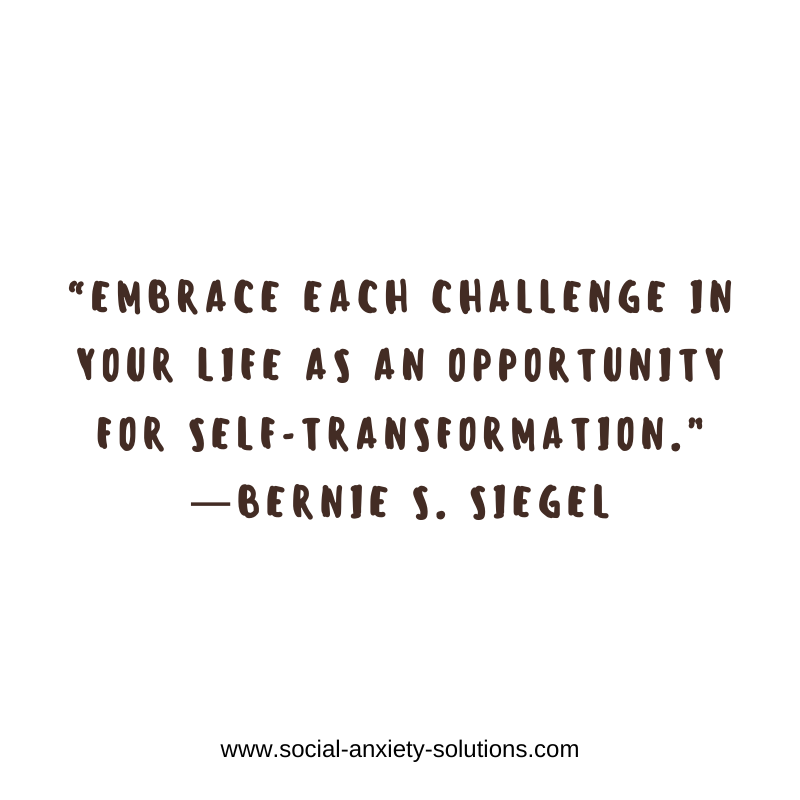
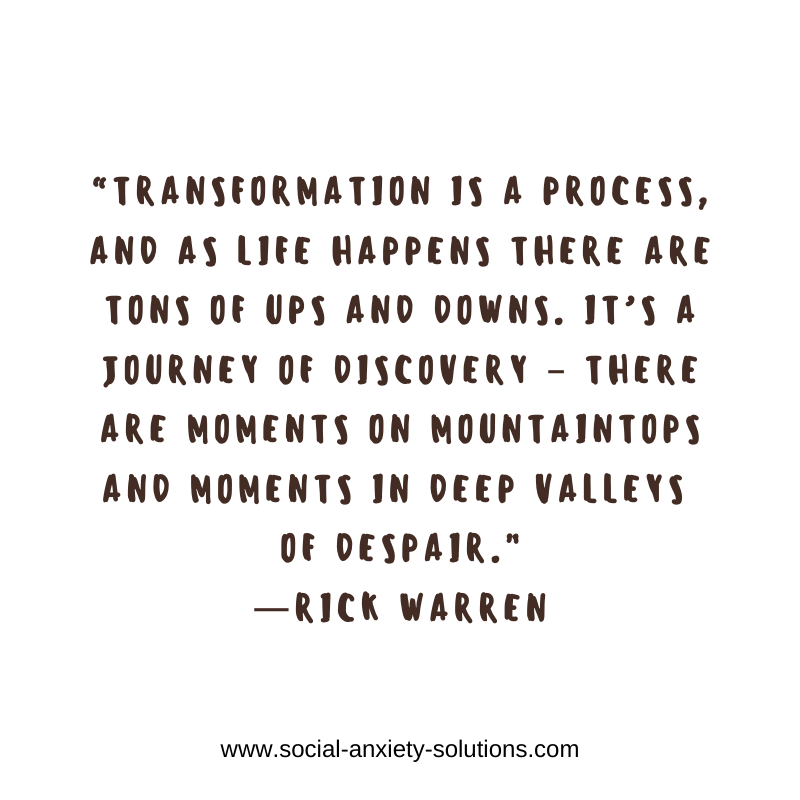
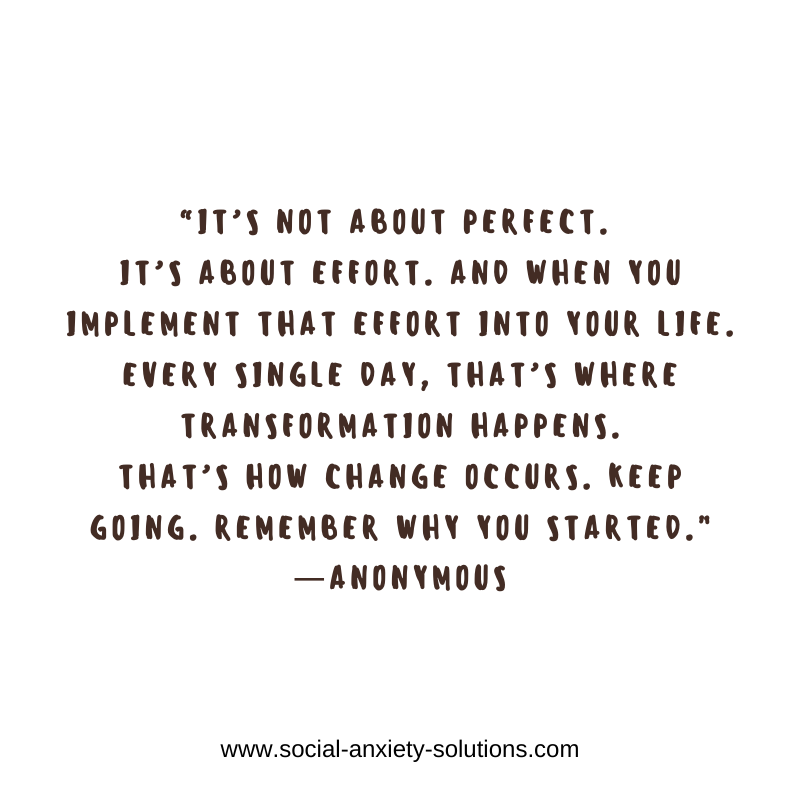
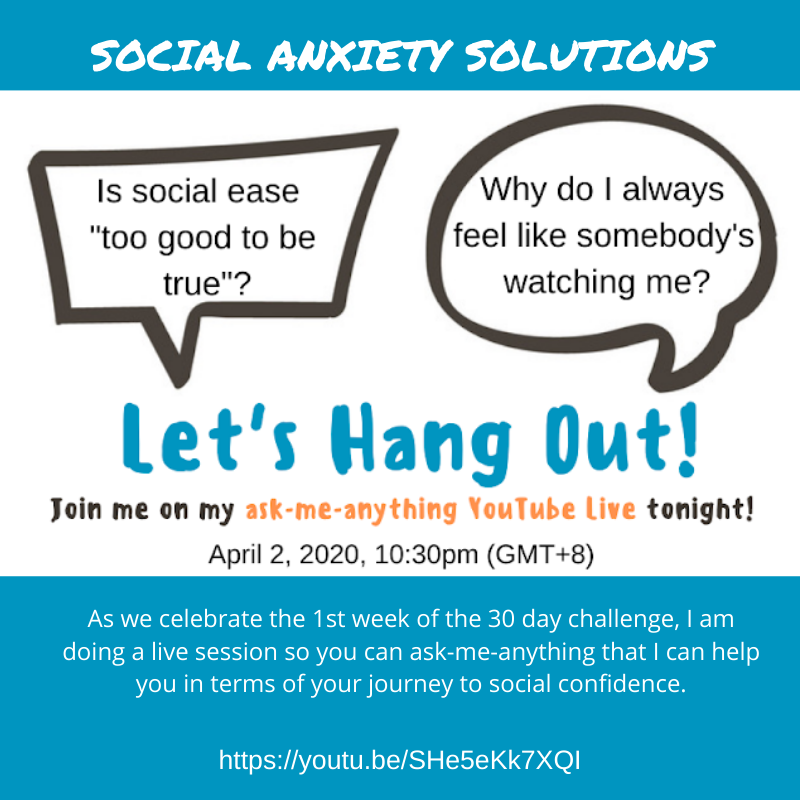
If you experience Social Anxiety, click below to receive the FREE “7 Secrets to Social Confidence” Mini Course!
- How To Stop Worrying - January 17, 2024
- How to Reduce Facial Blushing with EFT Tapping? - June 29, 2023
- Are You Scared to Get Anxious? Here’s how to fix it! - June 16, 2023

